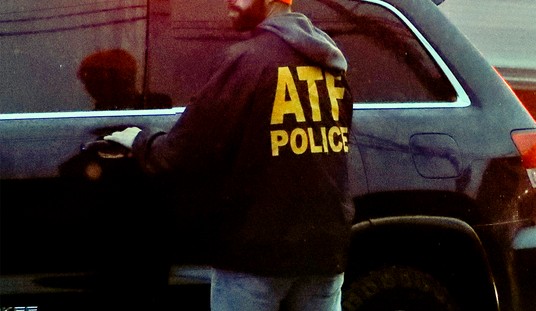Amanda Collins, a rape victim, speaks to the Aug. 6 National Self-Defense Conference in Washington, while Nikki Goeser, whose husband was shot and killed in a “gun-free zone” listens. Collins described how her rape would have been stopped if she was allowed to carry her handgun on her campus.
Courtesy photo
Two women, victims of gun violence in gun-free zones, opened the Aug. 6 National Self-Defense Conference in Washington organized by Students for Concealed Carry on Campus and the Second Amendment Foundation.
Had the law allowed the women to carry their guns, they would not have been attacked, said Amanda Collins, who was then a student at the Reno campus of the University of Nevada when she was attacked.
The second woman, Nikki Goeser, said she blamed the gun violence that she experienced on gun control laws.
Goeser said her husband was shot and killed in a bar in April 2009 by a man who had been stalking her. At the time, the laws in Tennessee prevented individuals from carrying a gun in an establishment that serves alcohol. “My husband and I were both victims of a gun-free zone.”
The signs designating areas as gun free zones have no positive effect, she said. “The only people who care about those signs are law abiding citizens.”
Criminals know that law-abiding citizens will be unarmed and helpless to protect themselves, she said. “Gun-free zones are death zones.”
Collins said she was returning to her car in the school’s parking garage when she was held at gunpoint and raped by a complete stranger.
Although she was a holder of a concealed carry permit, she said she was not allowed to carry her gun in the parking garage because her university is a gun free zone.
“My right to say no was taken away from me by both James Biela and the Nevada legislature,” she said. “All I wanted was a chance to defend myself and campus carry would have given me that chance.”
Collins disagrees with opponents of gun rights who claim she and other victims would be safer with increased security, since her attack, which took place less than 300 feet from the campus police station, she said.
Even the blue emergency call boxes installed on her campus were useless to her once Biela attacked, she said.
As bad as her situation is, Collins said it was important to remember that violent crimes are often repeated by the same criminal. After her rape, Biela went on to rape two other girls and killed one of them.
Collins said she believes that if she had been armed with her own firearm, she could have saved herself and others from the tragedy her attacker wrought on them. “Two other rapes would have been prevented and a young life would have been saved.”
The conference also featured a debate between John Lott, author of More Guns, Less Crime, and Colin Goddard, a victim of the Virginia Tech shootings.
Lott, an economist, said after a hand gun ban goes into effect gun violence always increases. In the case of Washington’s handgun ban, gun violence by about 40 percent, even before the crack cocaine epidemic.
“It’s not just DC and Chicago. You can look around the world. Time after time, you see increases after a gun ban goes into effect,” said Lott.
In the case of the Virginia tech shootings Lott said handgun bans on campus are not effective deterrents because being expelled from school is insignificant compared to multiple death penalties.
Lott said in most cases the attacker in a multiple victim shooting expects to be killed by police or plans to commit suicide.
Gun control laws do not work as deterrents, he said. “They do not perceive themselves as being around to have to face these consequences.”
Goddard said the severity of the Virginia Tech shooting was not due to the fact that it was a gun-free zone but because of too few gun restrictions and improper safety measures on campus.
He said it was not the simple matter choice gun advocates present: “Someone is going to come in that door and shoot you. Do you want a gun or not?”
The solution is to have more serious background checks of gun owners, he said.
“If you agree with the general statement, and I do, ‘guns don’t kill people, people kill people” then you’ll agree that we need to be checking those people,” he said.
Then, with more serious background checks, the next steps is to have a system in place for law enforcement agencies to share the background information.
In the case of the Virginia Tech shooter, Seung-Hui Cho, his background information had not been shared, said Goodard.
At that point, Lott, spoke up and said Goddard’s attacker had in fact passed the background check because he had not been involuntarily committed.









Join the conversation as a VIP Member